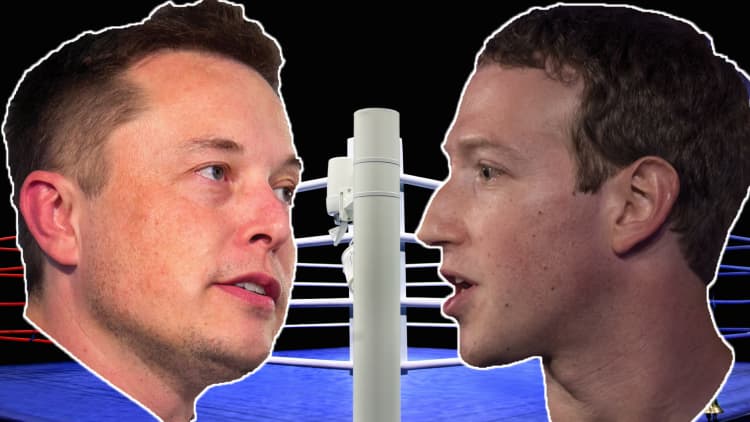Google employees wrote a letter to their boss, CEO Sundar Pichai, urging that the tech giant to not be involved in creating technology that will potentially be used for warfare.
"We believe that Google should not be in the business of war," reads the letter, which was obtained by The New York Times and published Wednesday.
The letter, which is currently being circulated on an internal communication server among Google employees and has been for "several weeks," has collected 3,100 signatures so far, according to the Times.
Employees are upset about a partnership between Google and the United States Department of Defense called Project Maven. The conflict was first reported by Gizmodo in March. Project Maven involves Google developing artificial intelligence surveillance to help the military analyze video footage captured by U.S. government drones "to detect vehicles and other objects, track their motions, and provide results to the Department of Defense," the letter explains.
Google employees want Pichai to formally end the partnership.
"We ask that Project Maven be cancelled, and that Google draft, publicize and enforce a clear policy stating that neither Google nor its contractors will ever build warfare technology," the letter states.
Google employees are concerned that the tech giant's involvement in the development of the technology will hurt the company's reputation.
"This plan will irreparably damage Google's brand and its ability to compete for talent. Amid growing fears of biased and weaponized AI, Google is already struggling to keep the public's trust," the letter says. "Google's unique history, its motto Don't Be Evil, and its direct reach into the lives of billions of users set it apart."

Google says it encourages its employees to speak up, and it is addressing the issue.
"An important part of our culture is having employees who are actively engaged in the work that we do," a Google spokesperson tells CNBC Make It.
"Any military use of machine learning naturally raises valid concerns. We're actively engaged across the company in a comprehensive discussion of this important topic and also with outside experts, as we continue to develop our policies around the development and use of our machine learning technologies," Google says.
The letter does mention an internal meeting about Project Maven during which Google Cloud CEO Diane Greene allayed some of the employees' specific fears, but they are still worried about unintended consequences.
"Recently, Googlers voiced concerns about Maven internally. Diane Greene responded, assuring them that the technology will not 'operate or fly drones' and 'will not be used to launch weapons.' While this eliminates a narrow set of direct applications, the technology is being built for the military, and once it's delivered it could easily be used to assist in these tasks," the letter states.
Despite the reference to the meeting in the letter, a Google spokesperson told The New York Times that "most" of the protest signatures were collected before the company had a chance to explain its involvement with Project Maven.
Further, Google says the work it is doing on Project Maven is going to help people, not hurt them.
"Maven is a well publicized DoD project and Google is working on one part of it — specifically scoped to be for non-offensive purposes and using open-source object recognition software available to any Google Cloud customer. The models are based on unclassified data only. The technology is used to flag images for human review and is intended to save lives and save people from having to do highly tedious work," Google says in its statement to CNBC Make it.

Still, for thousands of Google employees, any involvement with the Department of Defense is too dangerous.
"We cannot outsource the moral responsibility of our technologies to third parties. Google's stated values make this clear: Every one of our users is trusting us. Never jeopardize that. Ever," the letter says. "This contract puts Google's reputation at risk and stands in direct opposition to our core values. Building this technology to assist the US Government in military surveillance — and potentially lethal outcomes — is not acceptable."
See all:

Like this story? Like CNBC Make It on Facebook


